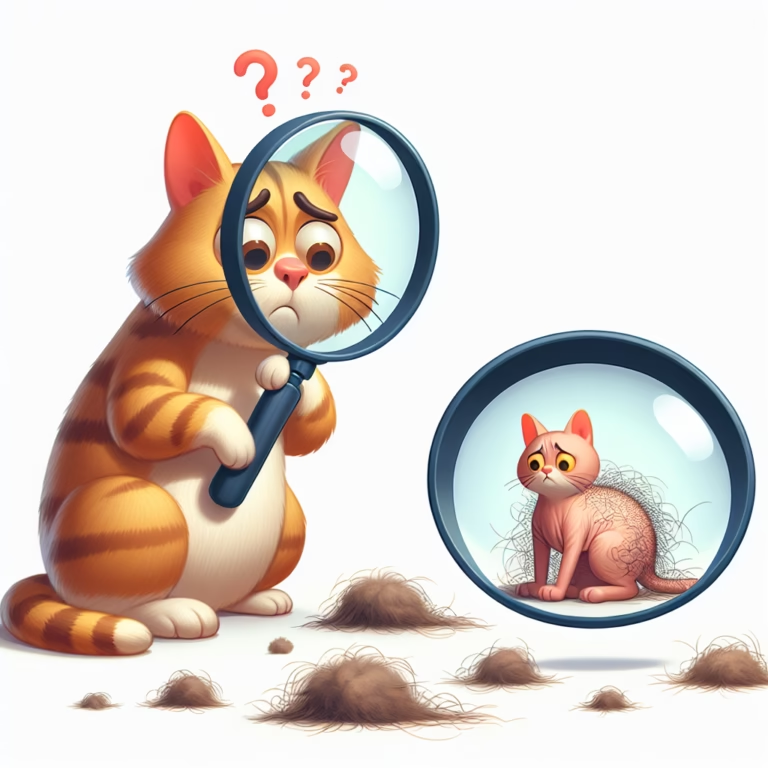

Understanding Feline Anxiety: Signs Your Cat Is Feeling Stressed
Cats communicate through their behavior, and recognizing signs of anxiety is essential for their well-being. Understanding feline anxiety not only helps to improve your relationship with your cat but also ensures their mental and emotional health. Cats can experience stress due to various factors, including changes in their environment, routine, or even health issues. Being attentive to their needs will enhance their overall happiness and comfort.
1. Features of Feline Anxiety
Feline anxiety can manifest in several ways. Some of the most common features include:
- Hiding: A stressed cat may seek secluded places and avoid interaction.
- Excessive grooming: Cats might over-groom, leading to hair loss and skin irritations.
- Changes in appetite: Anxiety can cause either loss of appetite or overeating.
- Vocalization: Increased meowing or crying can indicate distress.
- Aggression: Some cats may become irritable and lash out when they feel threatened.
- Litter box problems: A stressed cat might urinate outside the litter box.
- Pacing or restlessness: Increased movement can signal anxiety.
- Clinginess: Some cats may seek constant attention or follow their owners closely.
- Destructive behaviors: Chewing or scratching furniture can be a reaction to stress.
- Strange postures: Flattening of the ears or crouching can show discomfort.
Recognizing these features can help in managing your cat’s anxiety effectively.
2. Overview of Feline Anxiety
Understanding feline anxiety involves realizing that just like humans, cats can experience a variety of emotional responses. Each cat has its personality, and factors that may cause stress will differ among them. Environmental changes, such as moving to a new home or the introduction of a new pet, can lead to anxiety. Additionally, health issues or hormonal changes can also impact their emotional state.
By identifying signs of anxiety early, you can create a supportive environment and help your cat feel secure. This understanding enhances your bond and sets the foundation for a healthier lifestyle for your furry friend.
3. Why Cats Experience Anxiety
Several triggers can lead to feline anxiety, including:
- Change in environment: Moving to a new location or rearranging furniture can unsettle a cat.
- Introduction of new pets or people: New additions to the household may be perceived as threats.
- Loud noises: Thunderstorms, fireworks, or even vacuum cleaners can create distress.
- Health issues: Pain, illness, or medical conditions can lead to anxiety.
- Lack of stimulation: Boredom can result in anxiety, making enrichment crucial.
- Social isolation: Cats are social animals and may feel anxious if left alone for extended periods.
- Travel: Going to the vet or even riding in a car can be stressful.
- Conflict with other animals: Territorial disputes can produce tension and anxiety.
- Routine changes: Changes in feeding times or the absence of a family member may disturb them.
- Smells: Cats are sensitive to odors, and unfamiliar scents can lead to stress.
Understanding these factors can help you create an environment that minimizes anxiety triggers.
4. Who Is Affected by Feline Anxiety?
Feline anxiety affects not just the cat but also its owners and other pets in the family. Stress in cats can lead to behavioral issues, which may strain relationships with caregivers and compromise the overall harmony of the household.
When a cat displays signs of anxiety, its entire family may feel the repercussions. The cat may respond aggressively towards other pets, causing further anxiety, and the owner’s sense of stress can increase when trying to soothe their pet. Identifying the source of anxiety is the first step toward finding solutions and fostering a calmer environment.
5. Who Will Use This Information?
Anyone who shares their home with a cat can benefit from understanding feline anxiety. This knowledge is valuable for:
- Cat owners: Learning to recognize signs and symptoms fosters a healthier environment.
- Veterinarians and pet care professionals: They can provide advice on handling anxious behaviors effectively.
- Behaviorists and trainers: Understanding anxiety helps in developing training programs.
- Allergy caretakers: Those who maintain a multi-pet household will find this information crucial.
- Pet sitters or boarding facilities: Wary of how to keep pets calm and comfortable during their stay.
Arming yourself with an understanding of anxiety in cats can bring peace not only to your cat but also to your entire household.
6. What Is the Best Course of Action?
Dealing with feline anxiety requires a multi-faceted approach. Recommended strategies include:
- Creating a safe space: Designate a quiet area where your cat can retreat to feel secure.
- Maintaining routine: Keeping consistent feeding and playtimes helps provide structure.
- Interactive play: Engage in daily play sessions using toys that stimulate their natural hunting instincts.
- Calm environment: Utilize soft music or calming scents to create a soothing atmosphere.
- Feliway diffusers: These releases calming pheromones to help reduce anxiety.
- Proper nutrition: High-quality cat food supports overall well-being and may alleviate stress.
- Vet check: Regular health check-ups can identify underlying medical issues contributing to anxiety.
- Socialization techniques: Gradually introducing new pets or people can help reduce fear.
- Stress-relief products: Consider supplements or treatments designed to ease anxiety.
- Behavioral therapy: For severe cases, consult a professional behaviorist for tailored advice.
Adopting these strategies will promote a harmonious environment, allowing your cat to thrive.
7. Pros and Cons of Understanding Feline Anxiety
Understanding feline anxiety offers several benefits, as well as some potential challenges.
Pros:
- Improved behavior: Recognizing anxious behaviors helps correct them quickly.
- Stronger bond: Enhanced communication builds trust between you and your cat.
- Healthier environment: Calm cats promote a more pleasant living space for everyone.
- Early intervention: Quick identification of issues can prevent escalation.
- Enhanced quality of life: Caring for an anxious cat leads to longer, happier lives.
Cons:
- Time commitment: Addressing anxiety takes patience and consistent effort.
- Trial and error: Finding the right methods may require experimentation.
- Financial costs: Investing in products or consultations can be pricey.
- Emotional strain: Witnessing a stressed pet can be challenging for owners.
- Limited immediate results: Changes may take time to become evident.
Evaluating these points can guide your journey in supporting your cat’s mental health.
8. Opinions, Examples, Comparisons
Understanding feline anxiety comes with diverse perspectives from cat lovers and experts alike. Owners often share stories of how they managed stress in their pets. For example, one owner noticed her cat began to hide after moving to a new home. By creating a cozy retreat with familiar items, the cat gradually felt safer and more adjusted.
In contrast, some cats may not respond well to change without professional input. Working with a veterinarian helped another pet owner tailor behavioral solutions to their cat’s specific triggers.
Comparing different approaches can provide insights into effective strategies. Some individuals may find success in using calming supplements, while others rely on environmental changes or behavioral training. By sharing experiences, cat lovers can foster a supportive community that prioritizes feline well-being.
FAQs
1. What are common signs of feline anxiety?
Common signs include excessive grooming, hiding, changes in appetite, and aggressive behavior.
2. How can I help my anxious cat?
Create a safe environment, maintain a consistent routine, and engage in interactive play to reduce anxiety.
3. Is feline anxiety serious?
Yes, untreated anxiety can lead to more severe behavioral issues and health problems, which is why early intervention is crucial.
4. How can a veterinarian assist with feline anxiety?
A veterinarian can identify any underlying medical issues and recommend treatments or behavioral strategies tailored to your cat’s needs.
5. Can anxiety in cats be prevented?
While not all anxiety can be prevented, ensuring a stable environment, socialization, and enrichment activities can significantly reduce the risk.
Instantly Access Your FREE Children’s Books Here!
Disclaimer: As an Amazon Associate, I earn from qualifying purchases. I may earn a commission from qualifying purchases as an affiliate. Please note that I only recommend products I believe will provide value to my readers.







